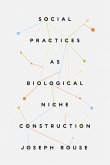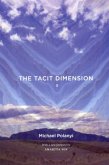Modern notions of empathy often celebrate its ability to bridge divides, to unite humankind. Yet how do we square this with the popular view that we can never truly comprehend the experience of being someone else? In this book, Samuel Fleischacker delves into the work of Adam Smith to draw out an understanding of empathy that respects both personal difference and shared humanity. After laying out a range of meanings for the concept of empathy, Fleischacker proposes that what Smith called "sympathy" is very much what we today consider empathy. Smith's version has remarkable value, as his empathy calls for entering into the perspective of another--a uniquely human feat that connects people while still allowing them to define their own distinctive standpoints. After discussing Smith's views in relation to more recent empirical and philosophical studies, Fleischacker shows how turning back to Smith promises to enrich, clarify, and advance our current debates about the meaning and uses of empathy.
Hinweis: Dieser Artikel kann nur an eine deutsche Lieferadresse ausgeliefert werden.
Hinweis: Dieser Artikel kann nur an eine deutsche Lieferadresse ausgeliefert werden.








